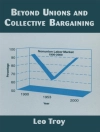Recent American foreign policy has depended heavily on the use of negative inducements to alter the behavior of other states. From public browbeating through economic sanctions to military invasion, the last several presidents have chosen to use coercion to advance U.S. interests when dealing with adversaries. In this respect, as Miroslav Nincic notes, the United States differs from many of its closest allies: Canada has long maintained diplomatic relations with Cuba, and several of the European democracies have continued diplomatic engagement with governments that the United States considers pariah regimes. In The Logic of Positive Engagement, Nincic outlines the efficacy of and the benefits that can flow from positive rather than negative engagement.Nincic observes that threats and punishments may be gratifying in a symbolic sense, but that they haven’t affected the longevity or the most objectionable policies of the regimes against which they are directed. Might positive inducements produce better results? Nincic examines two major models of positive inducements: the exchange model, in which incentives are offered in trade for altered behavior, and the catalytic model, in which incentives accumulate to provoke a thorough revision of the target’s policies and priorities. He examines the record with regard to long-term U.S. relations with Cuba, Libya, and Syria, and then discusses the possibility that positive inducements might bring policy success to current relations with Iran and North Korea.
Miroslav Nincic
Logic of Positive Engagement [PDF ebook]
Logic of Positive Engagement [PDF ebook]
Koop dit e-boek en ontvang er nog 1 GRATIS!
Taal Engels ● Formaat PDF ● Pagina’s 224 ● ISBN 9780801463013 ● Uitgeverij Cornell University Press ● Gepubliceerd 2011 ● Downloadbare 3 keer ● Valuta EUR ● ID 5206810 ● Kopieerbeveiliging Adobe DRM
Vereist een DRM-compatibele e-boeklezer












